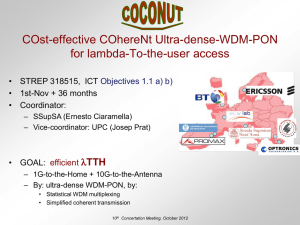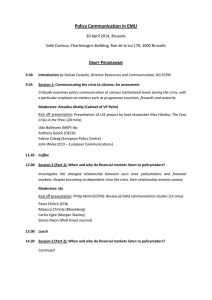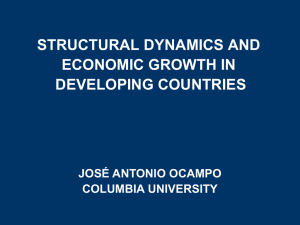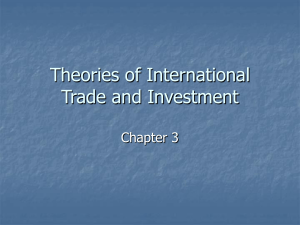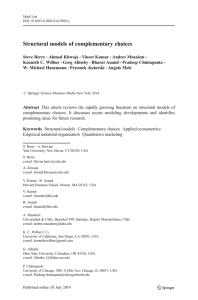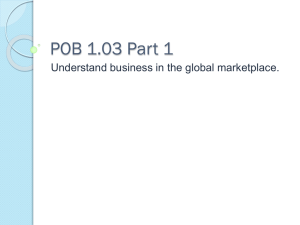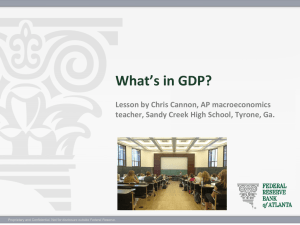The Netherlands and the Euro Crisis
advertisement
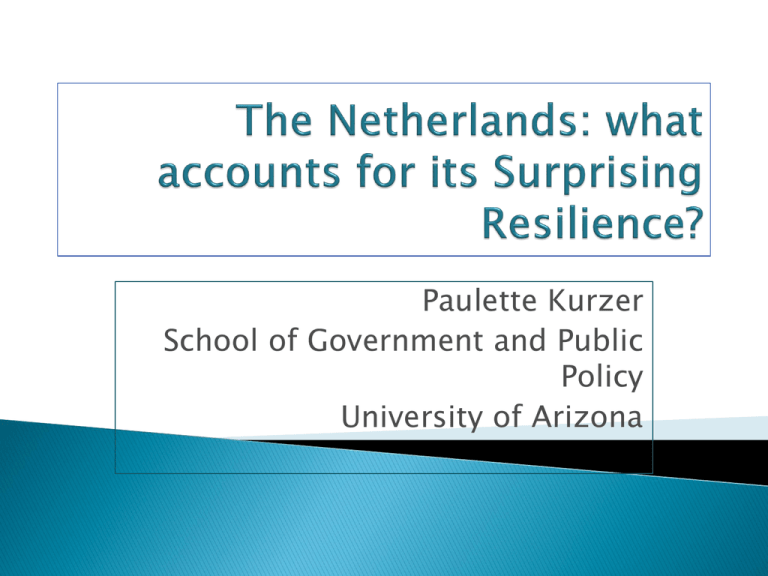
Paulette Kurzer School of Government and Public Policy University of Arizona Institutional o o o Complementarities Higher the Complementarities, The easier it has been to adjust to single currency, With corresponding greater ability to cope with the global crisis Social concertation, i.e. the Polder Model Provides flexibility, ability to reduce/control wage-price development, restructure social security Promotes non-inflationary growth 1. Complementarities….’accidental’ 2. Social concertation…. ‘coercive’ 3. Impact of the crisis…. ‘lucky’ NL is able to address the four key conditions of single currency: price stability, fiscal austerity, financial discipline, macro economic equilibrium. Due to the fact that it joined EMS/ERM in 1979 and pegged to DM in 1982. Institutional complementarities pre existed EMU, and corresponded to Dutch preferences and priorities Revived in 1982 after its collapse in1970s Wage restraints in return for job creation In the1990s social exchanges and cooperation (unemployment had dropped) After 2000, again, intense conflict and difficulties (based on social security reforms) Forced pay freezes and pay stops 2003 2004 2005 OECD Economic Surveys, Netherlands 2008, p. 22 Wage freezes of 2003-2005 in combination with labor market flexibility Tight labor market, shortage of labor Recession loosened tight labor market – hence good labor market performance as there was a shortage earlier. German-China Factor Twenty-five percent of all Dutch exports are destined for the German market exports are domestic produced goods and manufactured goods produced by companies of foreign origin ‘in transit’ Transit trade rose on average 11% between 2000-2008 domestically produced exports grew 2 percent during that period. Institutional complementarities predate founding of EMU, State played a large role in imposing, insisting on social concertation Role of the State also predates EMU Lucked out as the labor market was tight before 2008 And important supplier to the Germany economy. Institutions provide advantages at certain points Advantage may be a function of previous legacy and crises. NL has coped with external vulnerability US has been protected from similar kinds of exposures.
